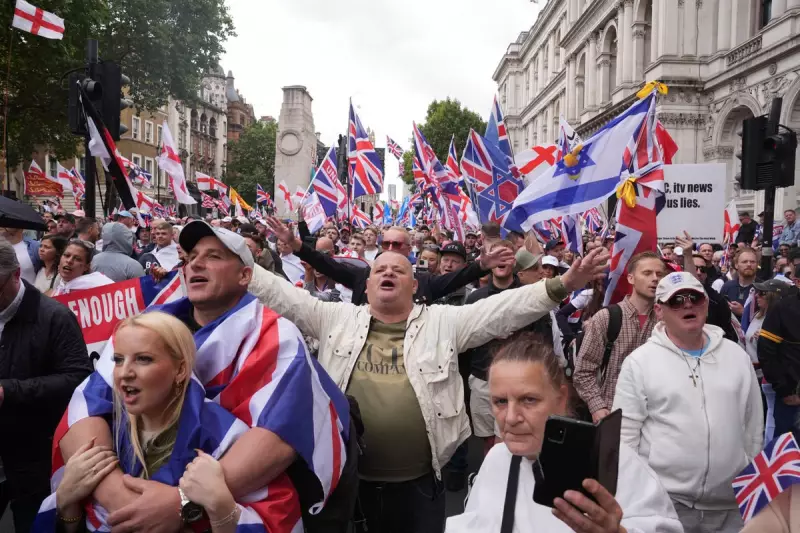
A major police operation descended upon central London this weekend as far-right figurehead Tommy Robinson, real name Stephen Yaxley-Lennon, led his controversial 'Unite The Kingdom' march. The event, which saw hundreds of supporters gather, resulted in a significant and visible Metropolitan Police presence to prevent disorder and manage counter-protests.
The march, starting at Parliament Square, proceeded through the heart of the capital. Participants, many draped in St George's flags, followed Robinson as he delivered speeches criticising the government and promoting his nationalist agenda. The atmosphere was tense, with police officers forming a tight corridor to separate the march from vocal opposition groups.
Clashes and Police Intervention
Despite the heavy security, skirmishes broke out between Robinson's supporters and counter-protesters. The Metropolitan Police confirmed several arrests were made for public order offences as officers worked to keep the two factions apart. The event highlighted the ongoing challenges UK authorities face in balancing the right to protest with maintaining public safety.
The Message of 'Unite The Kingdom'
Robinson, the founder of the English Defence League (EDL), used the platform to rally against what he describes as the 'failure of multiculturalism' and to voice strong opposition to current immigration policies. His rhetoric, which has long been a source of division, continues to attract a dedicated following while drawing widespread condemnation from anti-fascist groups and community leaders.
The 'Unite The Kingdom' title was presented as a call for national unity, yet critics were quick to label the event as a rally for divisive politics that promotes intolerance rather than cohesion.
Political and Social Repercussions
The march has reignited debates surrounding free speech, the limits of protest, and the resurgence of far-right activism in Britain. Political analysts suggest that such events, while drawing a specific crowd, reflect broader societal tensions and a growing polarisation within the UK political landscape.
The Metropolitan Police stated that the operation was conducted to ensure the event passed without major incident, a goal that was largely, though not entirely, met.






